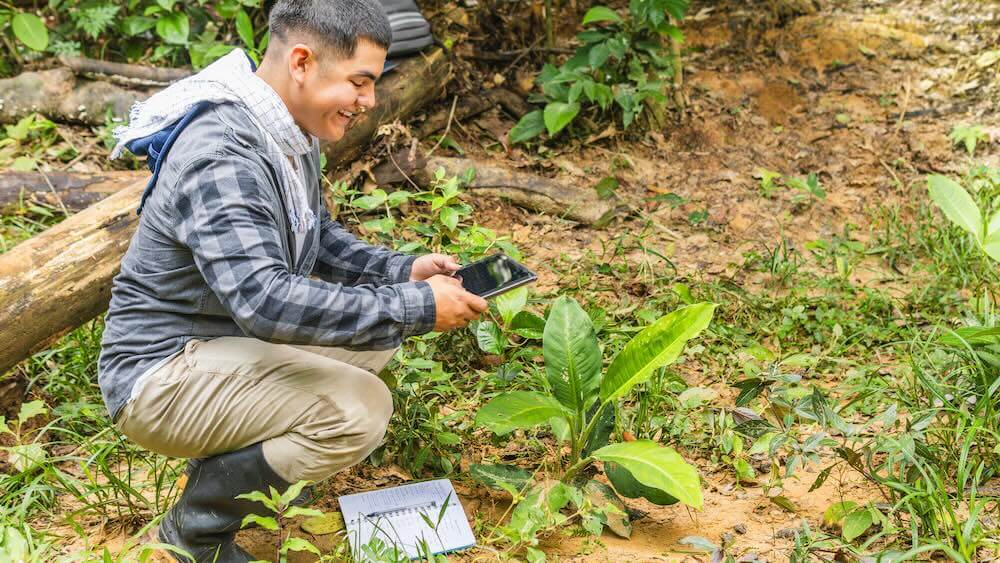


Shifting the sustainability conversation beyond carbon emissions requires recognizing that current measurement systems are incomplete.
“Latin America has a key role to play,” said Thiago Araujo, reflecting on his sustainability workshop at the inaugural PCMA Convening LATAM, which took place May 4-6 at Agora Bogotá in Bogotá, Colombia. But, he added, it’s not yet getting the attention it deserves in the global events conversation. Araujo, who was born in Brazil and currently lives in France, contributed to the sustainability efforts at the Rio 2016 Olympic Games, later held a sustainability leadership role at Volvo Group, and now serves as Global Sustainability Director at the global events company BCD Meetings & Events.
In a conversation on the Convene Podcast, Araujo discussed how the business events industry can evolve in its understanding of sustainability — and why Latin America should be central to that evolution. “If you are just concentrating more events in rich economies … what is your real social impact?” he asked. “Maybe you’re going to have [higher] emission by making people fly to Latin America, but you are enabling these countries because you have the other two aspects: the social and the economic.”
Shifting the sustainability conversation beyond carbon emissions requires recognizing that current measurement systems are incomplete. “We are not in a position to make that claim” about the full social and economic benefit,” Araujo said, “because we are not doing the right math.”
“Latin America has a key role to play,”
Thiago Araujo
Many Latin American countries are already equipped to support sustainable meetings, he said. He cited clean electricity grids in the region — “Brazil [has] more than 80 percent,” and “Colombia has 65 percent” — as an overlooked advantage. When international organizations choose Latin America, “they invest in these countries,” Araujo said, “and their resources.” As an example, he pointed to Costa Rica — the first country in the world to reverse deforestation, according to Conservation International Costa Rica. “But for this, [they] need money.”
Can you give an example of how event planners might challenge the status quo in destination selection and measurement?
“How many times do you receive a briefing with the destination already selected?” he asked. And that destination has “nothing to do with the logistics of the delegates,” but it is selected because of political or other motivations. Often, he added, those decisions can result in “300 percent or 400 percent more emissions.”
“This is the kind of thing we’ve been doing forever,” he said referring to event planners. Now industry professionals have the opportunity to change that using fact-based decision-making — and to challenge their clients’ choices with better data.
What tools or approaches should planners be using now to prepare for increased scrutiny around emissions?
“Net zero means that we limit our emissions to the capacity of the planet to absorb [them],” Araujo explained. “It’s not [an] easy calculation to do.” Referring to the Paris Agreement, the 2015 legally binding treaty signed by 195 parties, Araujo reminded that the goal is to limit the global temperature increase to 1.5°C. “I see that [as] the biggest achievement of humankind — if we deliver it,” he said.
The global commitment, he noted, has shifted industry conversations from innovation to accountability. “The trend is the pressure will probably increase the next three, five years,” Araujo said, pointing to 2030 as a milestone year when many companies will evaluate their targets.
Industries like automotive and pharmaceutical are already transforming their supply chains. But, Araujo said, “they don’t look at meetings and events and even business travel as a challenge because [they] control it. If [they] need to cut — [they] cut.”
“We’ve been ignored for a couple of few years,” he added, “but our time will come. We need to prepare for the companies that will start looking at all the emissions” — including those from events.
His advice for planners? Don’t panic. “Use this precious time to learn, to skill up, to be capable of engaging in this conversation.”
What’s one area of sustainability you believe is misunderstood — or deserves more attention from event strategists?
“I’ve been really advocating for compensation and offsetting,” Araujo said. “First, you measure. [Then] you reduce your emissions. But you still have unavoidable emissions — everybody has human activity. But when you have the economic power, you purchase carbon credits to compensate that emission that you couldn’t avoid.”
While offsetting is often associated with greenwashing, he acknowledged that reputation was partly deserved — there were scams and a lack of transparency. But that doesn’t mean offsetting should be dismissed. “The best way to increase the planet’s capacity to absorb CO₂ from the atmosphere is by investing in nature-based solutions,” he said.
“The world has degraded land as large as the surface of the United States. So if you take all [this] land that could just be restored … and if we do this properly, 40 percent of all the emissions we have to reduce could be absorbed by investing in restoration.
“This is low-tech, cheap. We [can] manage this. It’s reliable. It’s abundant. We know how to do [it]. It’s just we need to start doing this more” and with more commitment, Araujo said.
Magdalina Atanassova is digital media editor at Convene.








